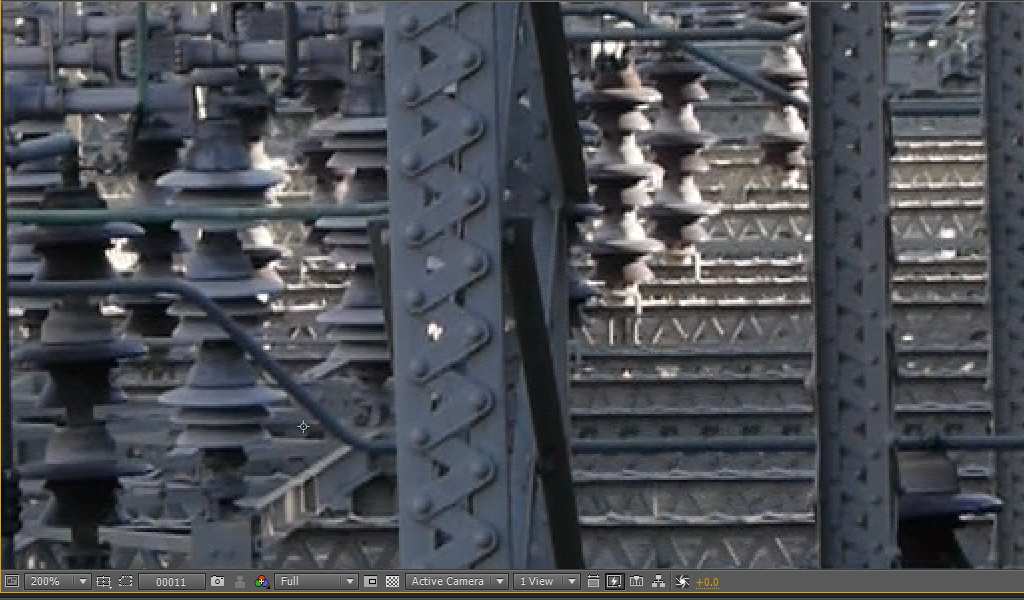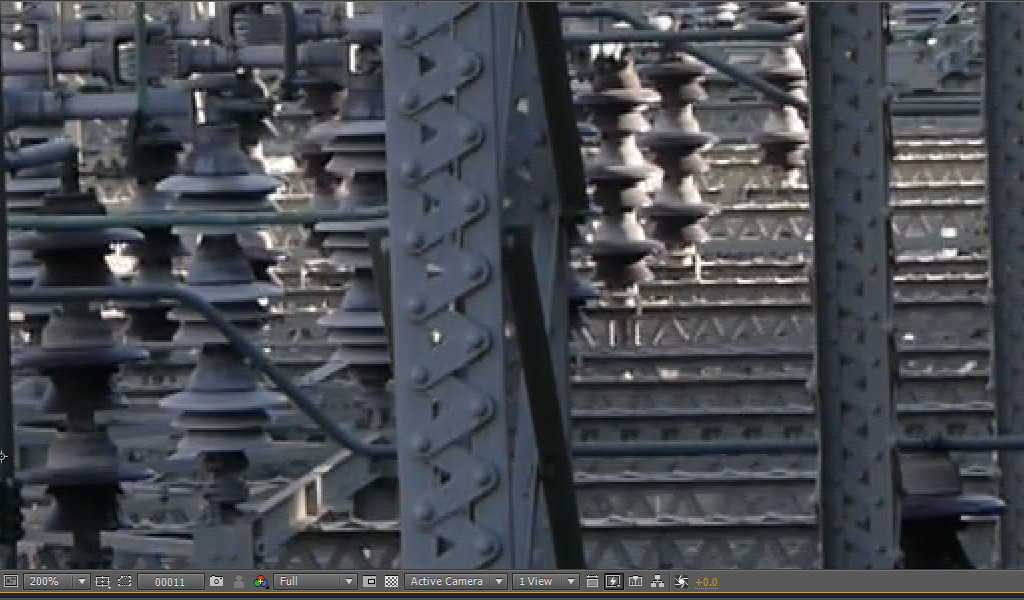
-
@vicharris I am exaggerating but I was thinking of a "first review by some crazy guy" that Driftwood mentioned some pages earlier in this thread. I think people are getting a bit too carried away.
The "stuff" the patched GH2 puts out is AVCHD 4:2:0 8bit at a significantly higher quality than the standard AVCHD specs but it is incorrect to call it raw.
-
@kodakmoment At least he posted something other than insults. These settings have brought out the best in the GH2 and the worst from a few of the members here!
-
@cbrandin Yes, it was HBR 25p, so it was interlaced. Thanks a lot for the clarification. I think @driftwood might want to post a warning for the 25p guys to wait with using the smooth 444 settings because it would cause them severe problems when using them for an important shoot. I have not yet tested the sharp2 settings and will report as soon as I have. Anyone intending to use them for serious work better check first.
-
@peternap Apologies once again. Comparisons that lead to invalid conclusions can trigger the troll in me. Among the GH2 owners and setting testers there is a bit too much cult. I think comparisons should be conducted in an objective and comparable way if they are meant to be of any help for other GH2 users.
-
@kodakmoment I mis-spoke, not raw but untouched and CC'd
-
@kodakmoment - There are so many different modes, etc... that it's hard for one guy (@driftwood) to get them all right at first try. I suspect the people who are really liking these are testing with 1080p - which has had more testing/adjusting than other modes.
-
@cbrandin I understand that and one should always test the settings one is intending to use. I would not be surprised though if someone reads in the setting descriptions that everything works fine and gives great quality in HBR etc., then reads some glorifying report without any indication regarding the mode and then goes out and ruins a shot. It would be their own fault of cause, but calling for some caution would be a reasonable thing to do. Unfortunately there seems to be an ongoing competition for "who develops the greatest settings" which leads to some sort of product marketing language which can be misleading.
-
By the way - the best way to see what @kodakmoment is talking about in his images look at the metal bars (zoomed in) next to the red car on the left.
-
@vicharris The best output in 1080p24 maybe, not in 1080p25, yet. Personally I think that among all the settings that have been developed the GH2 still looks like a GH2. It looks much better than with factory firmware settings but all settings share the characteristics of the GH2 which have advantages and disadvantages. To me the differences are not revolutionary, it's not like switching to a different camera model when switching from i.e. FlowMotion to Cluster V7.
-
The artifacts are actually quite visible on all lines and edges like cars etc. It will become very clear once one compares it with the other non-artifact frame grab.
-
@kodakmoment thanks for info. Driftwood wrote that this matrices are for 24p but he used them for all settings to see what people thinks. What is good cos is easier mixing formats 24p-25p-50p
-
Here are unedited 200% crop frame grabs from back-to-back videos taken with a Lumix X 45-175mm f4-5.6 @ 45mm f8, ISO 200. The first was shot with Flow Motion v2.02 and the second with Apocalypse Now 6-GOP 444 Soft. The original downloadable video files can be seen here:
Flow Motion v2.02 @ HBR 1080p30:

Apocalypse Now 6-GOP 444 Soft @ HBR 1080p30:

The FM2 video has an average bitrate of 65Mbps with DC quantizers of 6-7, range 5.
The AN6 soft video has an average bitrate of 56Mbps with DC quantizers of 7-8, range 5.

 FM2-Electrical Towers.jpg1024 x 600 - 247K
FM2-Electrical Towers.jpg1024 x 600 - 247K
 AN6-Electrical Towers.jpg1024 x 600 - 230K
AN6-Electrical Towers.jpg1024 x 600 - 230K -
My apologies for stirring some controversy by posting the earlier two pictures. You are all right. Although they were both 24H using Panasonic 14-140, straight out of camera but they were shot at different days, I only have one GH2, but I will re-shoot the same scene one after another with a few minutes difference because I need to reload the second setting. However, I am sure of one thing. I have done a lot of comparisons and when I do this one too, you will find out that, Cluster v7 444 soft picture will come out more colorful and soft and other settings like FM2 will be more video-ish but sharper. By the way, I am not biased towards any particular setting or person. I am a fan of FM2, Cluster, Sanity and GOP1.
-
Thanks for posting the comparison - it's interesting. One thing, though: the quantizer number by itself is meaningless because it is scaled by matrix values. What would be more meaningful is comparisons of the DC values and Ranges as reported by Streamparser's JM-SP decoder.
-
@cbrandin Ah, right you are, I edited the original post with the DC quantizer ranges.
-
@lpowell - One thing I did with these matrices is tune them (i.e. set lower values) so that they would be close to ideal when QP is set to 18-20. I'm not sure what the codec uses QP values for (aside from the obvious), so I didn't want the QP value to differ too much from the stock setting.
Also, I designed these for 1080p - so I'm not sure whether the HBR mode works as intended.
-
@cbrandin My understanding is that the QP value is used as an index into the H.264 Qstep table, outlined in this pdf:
http://ce.sharif.edu/courses/87-88/2/ce342/resources/root/H264%20Standard/h264_transform.pdf
So for example, a QP of 18 produces a Qstep of 5, which is used as the quantizing divisor. Each calculated macroblock component is then mulitplied by the corresponding Scaling Table coefficient and divided by (16 * Qstep) - which normalizes the Scaling Table coefficients to 16. So in practice, you can calculate the effective quantizer of each component as (16 * Qstep) divided by the corresponding Scaling Table coefficient.
-
Lpowel, After looking at the pictures you posted, I'm really not sure what to think. Somehow i'm sold on what I see from the AN soft 444.. The smoothness but still detailed picture impresses me. Yeah, there are some jaggines and maybe a tad loss of detail, but not like a cheap noise reduction going on. Also, it don't contain anything that reminds me of mosquito noise or added sharpening (big +). Don't get me wrong! I love FL 2.2 and have used it several times. Would love to see this soft 444 matrix implemented in FL btw!
To bad that none of the AN 444 soft patches are able to span... Spanning is a huge plus regard flow motion IMO.
Keep up the good work. And stop fighting btw ;)
-
@lpowell: as i said aswell on your thread, people would be more interested to see a comparision of 24p between the two settings.
-
@Lpowell, This is exactly the kind of test I've been wanting to see. If you find yourself having time and in the mood to do more tests, cbrandin mentioned it, but it would be interesting to compare it in 1080p mode. Unfortunately I won't have time until the weekend to do my own tests. Keep up the good work everyone!
-
@lpowell - if you are saying the effective Q offset = QP * (Matrix_Value / 16) for each entry, then right. Or, in other words - if QP is 16, then the Q offset values used are whatever is in the matrix. Also, what I mean by QP is the value used for each frame - not in PTool (e.g. typically I frames are QP-2, P are QP and B are QP+2)
[edited - sorry Lee, I was being a little sloppy when i left out "offset"]
-
oops, didn't see the above comment. I'm beating a dead horse!
-
@cbrandin I have a working theory about HBR mode encoding which seems to account for its idiosyncracies. I picture each GOP as divided into a pair of separate video streams comprised of 1920x540 fields derived from each GOP's initial I-frame. Each GOP in the upper-field stream has an IBBPBB structure, while GOP's in the lower-field stream have a PBBPBB structure. The initial P-field in the lower-field stream is derived from the initial I-field in the upper-field stream.
What this means is that the Scaling Table matrix is applied to macroblocks comprised of alternating scanlines from each progressively-scanned frame, separated out by the interlacing algorithm. That cuts the effective vertical resolution of each 1920x540 field in half, which will likely exacerbate any vertical aliasing artifacts.
-
@LPowell - I think you are right - but I would add one thing. I think it is important that the matrices for I and P frames be similar (ideally - the same) because of the P frame style encoding used in the lower part of I frames. I think they aren't - even with stock matrices - but I think they should be.
I'm not sure that with HBR the upper and lower parts are actually encoded separately - like they would be with true interlaced encoding. But nevertheless - using different matrices for the two halves seems like it would be problematic. You could be right, though, which would make the soft matrices inappropriate for HBR (or 1080i, or 720p, for that matter). I never intended these matrices for anything but 1080p - I just didn't give it any thought.
-
@fix - "Would love to see this Soft 444 matrix implemented in [Flow Motion v2]..."
Scaling Matrices lie at the core of the encoding engine and are not mix-and-match components that can be easily transplanted into different patches. Replacing FM2's custom Scaling Matrices with the Soft 444 matrix would convert it into a new patch that was no longer Flow Motion, and it would require its own bitrate balancing and stabilization. Judging from my comparison footage, the results would not justify the effort.
As for "fighting", since the insults and bullying have ceased, there is no longer a need to defend myself.
Howdy, Stranger!
It looks like you're new here. If you want to get involved, click one of these buttons!
Categories
- Topics List23,964
- Blog5,723
- General and News1,342
- Hacks and Patches1,151
- ↳ Top Settings33
- ↳ Beginners254
- ↳ Archives402
- ↳ Hacks News and Development56
- Cameras2,361
- ↳ Panasonic990
- ↳ Canon118
- ↳ Sony154
- ↳ Nikon96
- ↳ Pentax and Samsung70
- ↳ Olympus and Fujifilm99
- ↳ Compacts and Camcorders299
- ↳ Smartphones for video97
- ↳ Pro Video Cameras191
- ↳ BlackMagic and other raw cameras121
- Skill1,961
- ↳ Business and distribution66
- ↳ Preparation, scripts and legal38
- ↳ Art149
- ↳ Import, Convert, Exporting291
- ↳ Editors191
- ↳ Effects and stunts115
- ↳ Color grading197
- ↳ Sound and Music280
- ↳ Lighting96
- ↳ Software and storage tips267
- Gear5,414
- ↳ Filters, Adapters, Matte boxes344
- ↳ Lenses1,579
- ↳ Follow focus and gears93
- ↳ Sound498
- ↳ Lighting gear314
- ↳ Camera movement230
- ↳ Gimbals and copters302
- ↳ Rigs and related stuff272
- ↳ Power solutions83
- ↳ Monitors and viewfinders339
- ↳ Tripods and fluid heads139
- ↳ Storage286
- ↳ Computers and studio gear560
- ↳ VR and 3D248
- Showcase1,859
- Marketplace2,834
- Offtopic1,319







